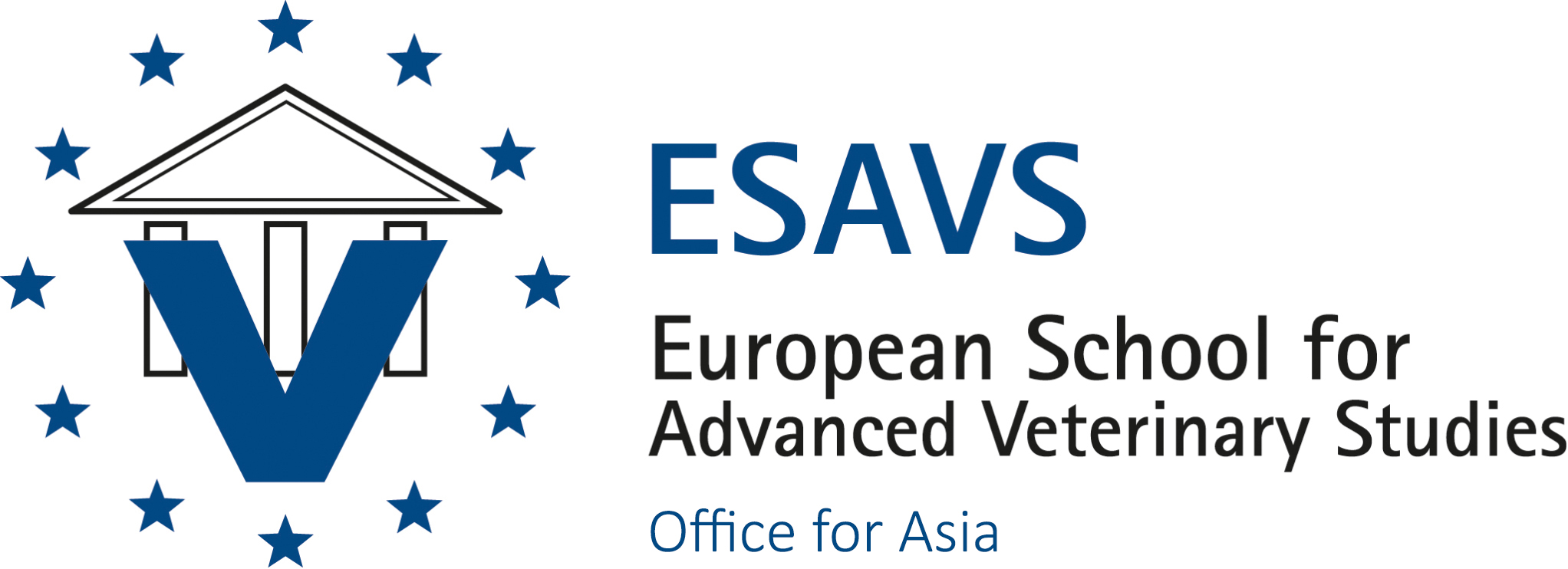Anaesthesiology
Individual Courses and Comprehensive Study Program
The ESAVS Asia Anaesthesiology courses are dedicated to veterinarians in practice or in the academic field who are willing to deepen their knowledge in Anaesthesiology. The comprehensive study program consists currently of 3 one-week modules. Much time is dedicated to interactive and practical training under the supervision of course masters and instructors, who are all internationally, recognized European or American specialists.
Anaesthesiology I: Principles of Small Animal Anesthesia & Loco-Regional Anesthesia & Analgesia
This basic 7-day course program targets veterinarians with foundation knowledge in clinical anesthesia who in the future wish to focus on anesthesia, perioperative patient care, and pain management in small animal practice. The first 4 days of the program provides participants with a comprehensive understanding of the principles and the state of the art techniques of small animal anesthesia and perioperative analgesia including routine perioperative vital organ function monitoring and pain management. The second part of the program focuses on loco-regional anesthesia and analgesia as an adjunct to general anesthesia and perioperative pain management. Wet labs and workshops will help participants familiarize themselves with common techniques of loco-regional anesthesia and analgesia in dogs and cats and the use of ultrasound guidance to perform nerve blocks.
Anaesthesiology II: Advanced Practice of Small Animal Anesthesia and Perioperative Analgesia
In this 5-day course, participants will acquire understanding of traditional anesthesia machinery functioning versus modern-day anesthesia workstations, and learn in workshops how to apply volume- and pressure limited ventilation in small animal patients using modern-day ventilators. With the aid of computer simulations participants will deepen their understanding of the pharmacokinetics of injectable and inhalant anesthetics and become familiar with state of the art techniques of total intravenous anesthesia (TIVA) and high versus low flow inhalant anesthesia. Participants will learn the concepts of diagnosing and treating perianesthetic cardiac arrhythmias, acid-base and electrolyte disturbances. Furthermore, by being exposed to a variety of case scenarios in small group workshops participants will acquire appropriate skills in interpreting the ECG and treating arrhythmias, applying various forms of mechanical ventilation, and diagnosing and treating derangements in acid-base and electrolyte status.
Anaesthesiology III: Disease-specific Aspects of Small Animal Anesthesia, Multimodal Pain Management, Life Support in Cardiac Arrest Patients, and Postoperative Intensive Care
In this 5-day course, participants will learn how to apply the principles of advanced anesthesia, perioperative analgesia, and critical patient care to the small animal patient with a specific preexisting disease and/or condition. Anesthetic care for the patient with cardiac, neuronal, ophthalmological, (poly)trauma, renal, hepatic, gastrointestinal, septic, etc., disease, and specific patient groups (brachycephalic animals, neonates, and senile animals) will be discussed. Participants will acquire fundamental understanding of the pathophysiology of pain and strategies of multimodal pain management. Furthermore, they will learn in simulator labs how to apply Basic Life Support and Advanced Life Support in cardiopulmonary arrest patients. Finally, the postoperative intensive care for the surgical patient will be discussed. Teaching will be primarily case-oriented.
Upcoming Courses
| Anaesthesiology 1, TBA/China, Prof. Driessen | 31. Dec 2025 | |
| Anaesthesiology 2, Shanghai/China, Prof. Driessen | 31. Dec 2026 | |
| Anaesthesiology 3, Shanghai/China, Prof. Driessen | 31. Dec 2026 |


